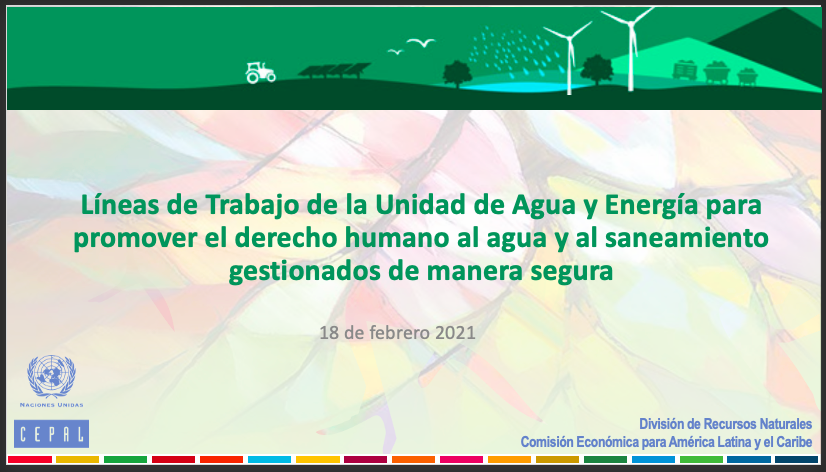ECLAC participation in the II Venezuela 2021 Business Sustainability Forum
Work area(s)
Topic(s)
Teaser
The virtual event aimed to encourage the efforts of the private sector to accomplish the 2030 Agenda in Venezuela. Jeannette Sánchez, Director of the Natural Resources Division of ECLAC, presented the challenges and opportunities faced by companies regarding the environmental sector and natural resources.
Event information

Date
30 Jul 2021, 05:00 - 07:00Event type
On July 30, the II Venezuela Business Sustainability Forum was developed. This event has the participation of many experts such as the President of the Asociación Civil Acción Solidaria in Venezuela, the Director of Analysis and Technical Evaluation of the Vice Presidency of the Private Sector of CAF, the President of the Working Group on Business and Human Rights of the United Nations and the Commission Economics for Latin America and the Caribbean, and the Director of the ECLAC's Natural Resources Division, Jeannette Sánchez.
Sánchez started talking about the impact of the pandemic on the economic, social, and environmental development of the region. She highlighted the concern in this last sector, mainly due to the decrease in environmental protection budgets and the growing trend towards intensive exploitation of natural resources. In this context, the Director insisted on the need for a combination of appropriate policies and instruments for post-COVID19 recovery and the importance of promoting sustainability to increase investment efficiency.
Sánchez also pointed up Bioeconomics and Circular Economy as pillars to achieve sustainability, as well as the need for an energy transition towards increasing the use of renewable energies. In addition, she emphasized the importance of Venezuelan biodiversity and its resources; and the need to diversify the economy to reduce dependence on fossil fuel.
Regarding water resources, Sánchez mentioned that one of the main challenges facing Venezuela is inefficiency in the use of water, which has been growing particularly in the agricultural sector, efficiency levels are below the regional average. On the other hand, she explained that the potential of water resources is underutilized. Venezuela is one of the countries with the lowest efficiency in the use of water by production level, despite having 5.8% of renewable freshwater resources in the region. To solve this problem, the proposal of an integrated water resources management model was recommended, also considering a multisectoral nexus approach, which promotes synergies between resources.
Finally, in the Q&A section, the director highlighted that the strategy to achieve sustainability must begin by generating circular economy projects. Companies must adopt technologies that improve the efficiency of the use of materials, energy, and water and strengthen innovation. New projects must also consider a circular approach from the beginning. In addition, she emphasized the need to create public-private alliances, based on rebuilding trust between the business sector and the central government.
Related content
